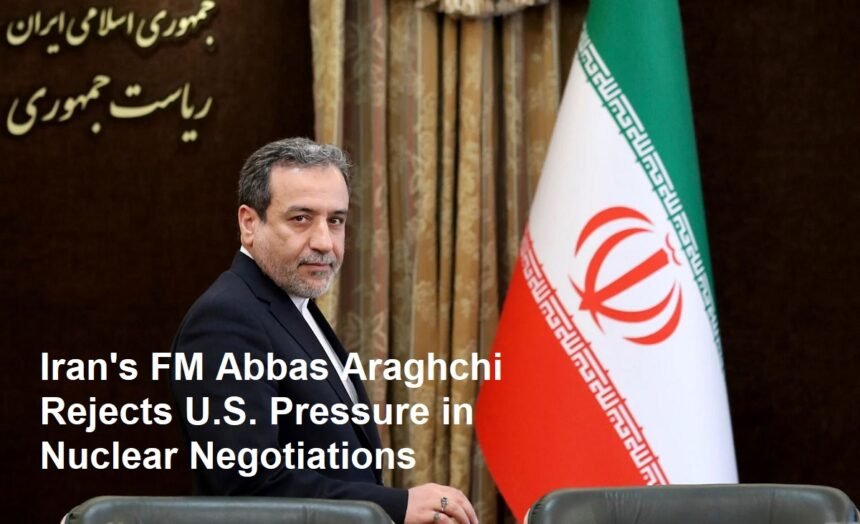During a press conference held in Tehran today, Iran’s Foreign Minister Abbas Araghchi announced that his country rejects any negotiations regarding the development of its nuclear program if they are conducted under the intimidation and pressure of the United States. In his address, Araghchi emphasized that Iran’s pursuit of nuclear technology remains a sovereign right and is exclusively intended for peaceful purposes. The minister criticized recent proposals that seek to impose conditions on Tehran’s nuclear activities, arguing that such measures represent a blatant infringement on national sovereignty. He asserted that Iran will not allow external forces to dictate the terms of its scientific and technological progress.
Araghchi stated, “We will not engage in negotiations that are based on coercion or punitive measures imposed by external powers. Our nuclear program is a matter of national pride and is vital to ensuring our energy independence and technological progress.” He argued that any attempt to use economic sanctions or political threats as leverage is not only unjust but also counterproductive to fostering a genuine dialogue. The minister’s remarks came in response to renewed efforts by the United States to reintroduce conditions that limit Iran’s nuclear development. According to him, such proposals undermine trust and hinder the potential for constructive engagement between the two nations. These measures, he emphasized, not only violate the principles of fairness but also damage the prospects for any meaningful diplomatic resolution.
The minister’s strong stance has elicited varied reactions from the international community. Some Western diplomats expressed concern that such an uncompromising position might escalate tensions and hinder progress towards a negotiated solution. Meanwhile, several of Iran’s regional partners have applauded the declaration, viewing it as an assertion of national dignity and a necessary rebuke against what they describe as excessive external meddling. Analysts note that the firm tone of the statement reflects a broader shift in Iranian policy, one that prioritizes self-reliance over concessions. Observers believe that this development may prompt a reevaluation of strategies on both sides, potentially leading to a recalibration of diplomatic engagements. Many experts suggest that such recalibration could eventually foster a balanced global dialogue.
Tehran’s declaration also underscores its broader strategy to advance domestic technological capabilities and reduce reliance on foreign expertise. Officials have reiterated that investment in local research and development is central to the nation’s vision for progress. By rejecting negotiations premised on coercive tactics, Iran aims to strengthen its negotiating position and secure greater autonomy in international affairs. This strategic pivot is seen as a response to decades of external pressures that have often accompanied previous nuclear discussions. The government maintains that only an equitable framework can lead to sustainable progress and mutual understanding among nations, setting a new tone for future diplomatic engagements. Analysts observe that this move reaffirms Iran’s independence and challenges conventional negotiation tactics on global stage.
In summary, Iran’s Foreign Minister Abbas Araghchi has sent a resolute message by rejecting negotiations that rely on U.S. intimidation and coercive practices. This firm stance highlights Tehran’s determination to pursue its nuclear program for peaceful purposes while asserting its right to self-determination. The declaration is likely to shape future diplomatic discussions, prompting both allies and adversaries to reconsider their approaches to engagement with Iran. As the international community grapples with these developments, many anticipate a shift towards more balanced and respectful negotiations that honor the principles of sovereignty and mutual benefit. Experts believe that this declaration will force a reconsideration of long-standing policies and may lead to a new era of diplomacy based on fairness and true engagement.












